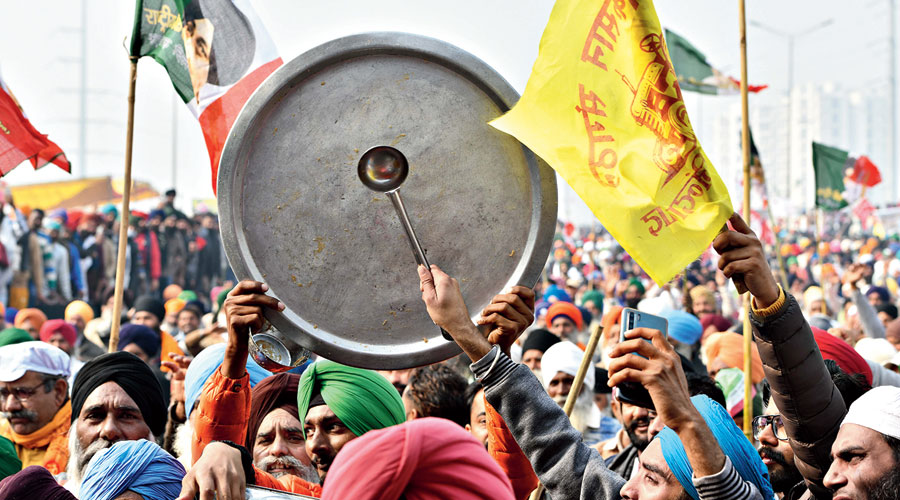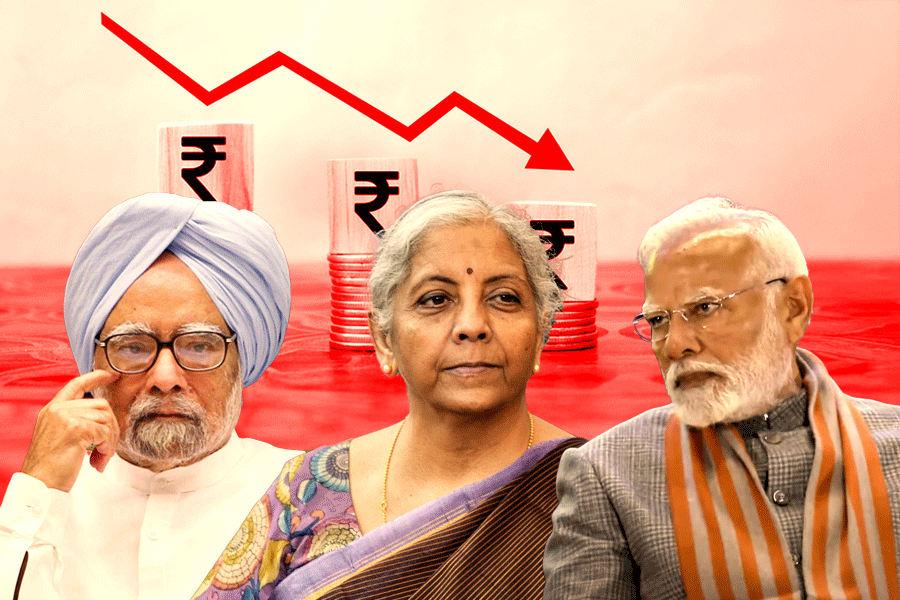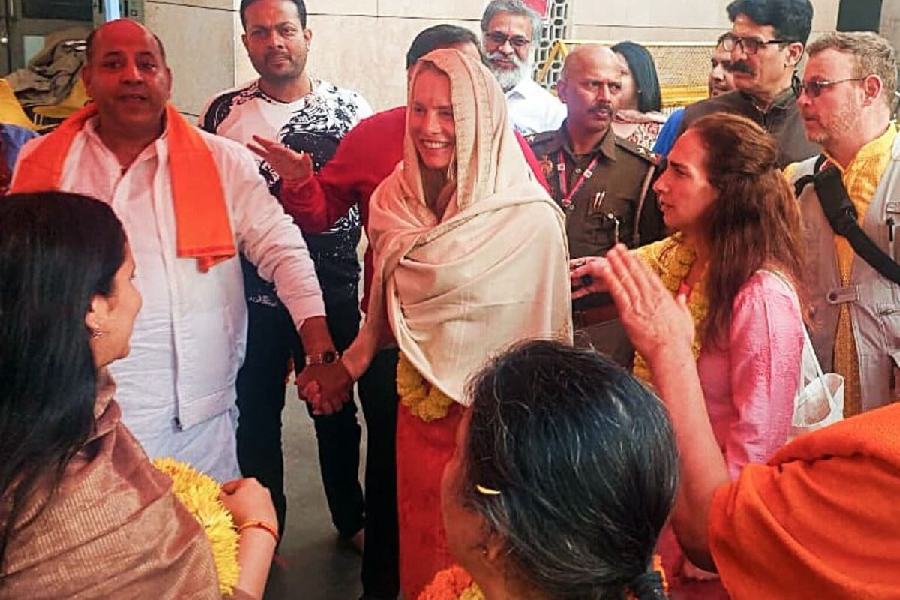The tent seemed more spacious and the winter didn’t bite as much. After spending four days on the road in a cramped tempo with 14 others, Chhagan Chaudhari, 60, extended his legs and wrapped himself with a thick blanket as he prepared to sleep on December 25 night in Shahjahanpur.
“The journey was backbreaking,” Chaudhuri said. “The tempo is open from the rear end. There is no protection from the chilly winds. Even when we stopped at night to sleep at a maidan, I hardly had enough layers on me to feel warm.”
An Adivasi farmer from the village of Pochada in Maharashtra’s Palghar district, Chaudhari had started his four-day road trip towards Delhi with a torn blanket, a worn-out sweater and an unshaken resolve. “We need a farmer-friendly government,” he said.
Ever since the Narendra Modi government rammed through three farm bills in mid-September, farmers and farm leaders have staged sit-in protests at various locations in and around Delhi. One of the protest sites is at Shahjahanpur, on the Rajasthan-Haryana border, along the highway to Delhi.
The farm bills have paved the way for privatisation, encouraging large corporations to enter the field of agriculture while overriding the state-regulated mandis or wholesale markets.
Farmers demanding the withdrawal of the bills say the private sector, solely interested in its own profits, will end up exploiting farmers in the absence of any regulation. This could jeopardise the government-decided minimum support price, which is enforced extremely well in Punjab and Haryana, which explains why the protesters have largely consisted of farmers from Punjab and Haryana apart from Rajasthan.
However, on December 21, farmers from Maharashtra decided to join them to show that the protests were a national issue. Mobilised by the CPM-affiliated All India Kisan Sabha, about 2,000 of them embarked on an ambitious, 1,400km vehicular march towards Delhi from Nashik district.
Chaudhari was one of them. The farmers chanted slogans, played traditional instruments, sang and danced their way to Shahjahanpur.
After they reached Shahjahanpur, more tents were put up along the national highway to accommodate them. Arrangements for better blankets had been made too.
“We wanted to make a point,” Chaudhari said, wearing a monkey cap. “The protests are not limited to certain states. Farmers in Maharashtra are upset with the farm laws too.”
One of the laws, which talks about contract farming, has particularly riled Shivanand Jhalke, 40, a farmer from Mandrup in Solapur district.
“In our area, contract farming of bamboo, chandan (sandalwood) and safed musli (a herb) happens at a substantial level,” he said.
“Almost every time, the large companies that enter into a contract with the farmers pledge certain returns and then go back on their word. They give reasons like ‘the quality is not good’ or ‘the market is not conducive’. The farmers have no option but to put up with it.”
For the farmers, already caught in an exploitative trade, the bills introduced by the Modi government make it even more difficult for them to have any mechanism for redress.
“Farmers in any case have little agency,” Jhalke said. “We do not have the resources to take on large companies. After being duped, farmers have to choose between fighting a legal battle and running their household. They mostly choose the latter.”
A large segment of the protesters who travelled from Maharashtra to Shahjahanpur are Adivasis fighting for their land titles under the Forest Rights Act, 2006.
Jijabai Gayakwad, 70, who has been tilling a patch of two acres in the village of Sindhwad in Nasik, said that contract farming could turn farmers into bonded labourers. “They would own the farmland on paper but, effectively, they will be slaves on their own land,” she said.
“I have been fighting for my land rights. Even though I have been tilling my land for decades, it comes under the forest department. I know what it is like to have your land and still not have control over it.”
In March 2018, Jijabai had participated in a weeklong farmers’ march that covered 180km on foot from Nashik to Mumbai demanding better enforcement of the Forest Rights Act.
“I won’t be coming to Delhi,” she said. “The Nashik-Mumbai march broke my back. I will come up to the Madhya Pradesh border and head back home. But I wanted to mark my presence at a rally that condemns these bills.”
The critics of the farm protests claim that the farmers do not know what they are protesting against. However, the farmers from Maharashtra know exactly how the bills would affect their lives.
Narayan Gayakwad, 73, a sugarcane farmer from Jambhli village of Kolhapur, said the fourth bill, which is in the works, would hurt him the most.
“That bill aims to privatise electricity,” he said. “I grow sugarcane, which requires a lot of water. I need power to apply the water pump. If I lose the subsidy that I get on electricity, I’m done. It would increase my production cost to the extent that I would never be able to make any profits.”
Among those affected by the farmers’ declining purchasing power are the landless agricultural labourers. Chaudhari, who also works as a labourer, said that if the farmers don’t make profits, they will not employ labourers.
“It’s simple,” he said. “The well-being of farmers is important to the well-being of the rural economy. The current farm bills do not consider the well-being of farmers.”
Chaudhari earns Rs 200 as a day labourer. The time he is spending away from his village, protesting, is costing him the opportunity to earn his bread and butter.
“I will be camping in Shahjahanpur for three days,” he said. “Then I will return home. I wanted to make a point, which I did by coming here. But I also have a family to feed.”
Parth M.N. is a Mumbai-based journalist who accompanied the vehicular march from Maharashtra











